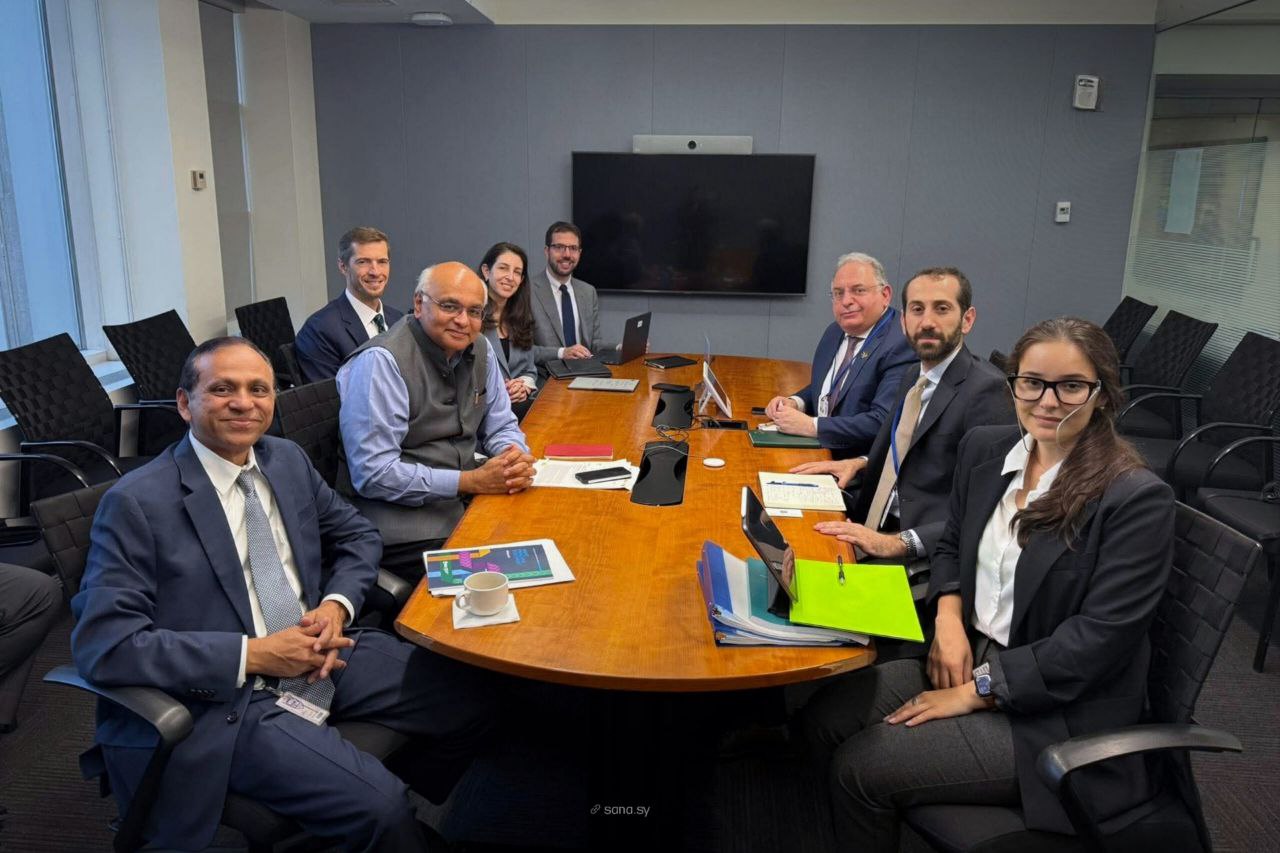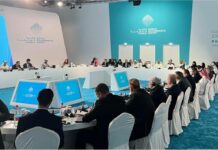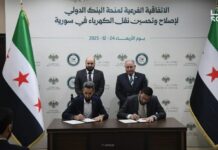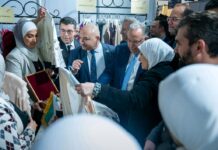 In a major development, the annual meetings of the International Monetary Fund (IMF) and the World Bank Group are taking place in Washington, DC, with the participation of a high-level Syrian delegation led by Finance Minister Muhammad Barnieh.
In a major development, the annual meetings of the International Monetary Fund (IMF) and the World Bank Group are taking place in Washington, DC, with the participation of a high-level Syrian delegation led by Finance Minister Muhammad Barnieh.
The Syrian presence marks the country’s return to the global financial stage after years of absence. On the sidelines of the conference, Minister Barnieh held several high-level meetings, most notably with IMF Managing Director Kristalina Georgieva, who explicitly welcomed Syria’s reintegration into the international financial system.
Reforms and Economic Challenges
In his remarks, Minister Barnieh reviewed Syria’s ongoing economic reform efforts amid significant fiscal and structural challenges. He emphasized the country’s commitment to policies promoting economic transformation, digital modernization, and innovation-driven growth, while highlighting the financing required to achieve the Sustainable Development Goals (SDGs).
Discussions also addressed the global risks posed by high debt levels in developing economies, underscoring the need for international cooperation and prudent financial management to sustain recovery efforts.
Investment Guarantees and Private Sector Confidence
Investment guarantees emerged as a central theme during meetings with the Vice President of Operations at the Multilateral Investment Guarantee Agency (MIGA). Part of the World Bank Group, MIGA promotes foreign investment in developing countries by providing political risk insurance and other guarantees to protect investors. Barnieh identified such lack of investor protection from non-commercial risks as “the biggest obstacle” to attracting capital into Syria.
He revealed several international investors expressed interest in entering the Syrian market but remain hesitant without such guarantees. Both sides agreed to take immediate steps to facilitate MIGA’s involvement, including an upcoming visit by a delegation from the agency to Damascus next month to finalize operational arrangements.
Exploring Innovative Financial Instruments
Talks also explored long-term financing mechanisms and diaspora-focused investment initiatives. The Syrian delegation proposed issuing bonds or financial instruments for Syrian expatriates to channel contributions into national investment and reconstruction projects—an approach inspired by successful experiences in other countries.
The discussions highlighted MIGA’s potential role in securing long-term financing, supporting reconstruction programs, and establishing savings schemes that encourage Syrians abroad to invest in the country’s development.
Partnerships for Development and Recovery
In a related meeting, the Syrian delegation met with the President of the Arab Gulf Program for Development (AGFUND) to discuss revitalizing the program’s activities in Syria. The discussions focused on expanding microfinance, agricultural development, and vocational training initiatives aimed at empowering communities and supporting sustainable livelihoods.
Reconnecting with the Global Economy
These engagements collectively mark a turning point in Syria’s economic diplomacy. By renewing ties with major international financial institutions and development agencies, Syria is taking concrete steps toward rebuilding investor confidence, mobilizing global partnerships, and reintegrating into the international economic system—a critical foundation for the next phase of reconstruction and sustainable development.








